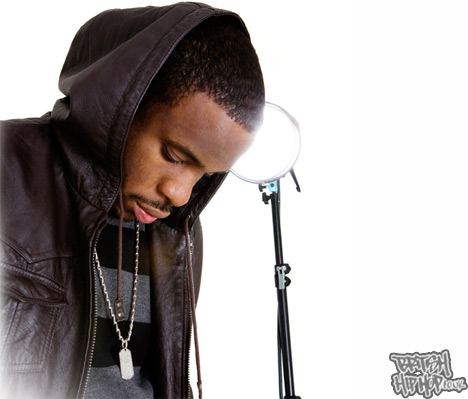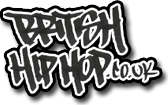Karl Hinds definitely deserves respect. Starting way back in 1993 he founded and put out drum and bass on the Assassin label. He then went on in 2000 to set up hip hop label Ill Flava Records. Self-producing and rapper on all his albums, Karl Hinds is definitely an entrepreneurial force to be reckoned with. I met up with him at his studio in Ilford for a serious discussion about his story so far in UK hip-hop and beyond.
It was 1993 when you started with your drum and base label Assassin Records…
Karl Hinds: I had the idea when I was 15. I used to be managed by a guy called Wonton. He was managing All Saints the pop group at the time. He offered me a contract that was f'd up so I turned it down in not so pleasant terms, but one thing that he said, he was like, “I left school with no qualifications but look at what I've created”. So I went home that night a bit down on myself about the whole music industry. Dude tried to dupe me because I was young. I just thought to myself well if he can do it, I can do it, so in a funny way he inspired me and I came up with Assassin Records. I was going to create what I do. If I sell a lot less, I probably end up making the same amount or more because I own everything.
So you were 15 years old at that point. This is like 92, 93?
Karl Hinds: Your talking 1991. A couple years later after trying to figure out how I'm going to do this with no money, Assassin records became a reality. The purpose of Assassin Records was to raise money to do hip hop.
You were into drum and bass music at the time?
Karl Hinds: Essentially the foundation of Assassin Records was a jungle label. It's not a drum and bass label, initially. It was jungalist music. It was reggae music interpreted in our style. That was accessible and I completely understood that. I had all the records they where sampling to make these records downstairs in my Mum and Dad's collection, so as soon as jungle formed, I overstood it.
You were obviously learning about music creation and you had equipment and stuff?
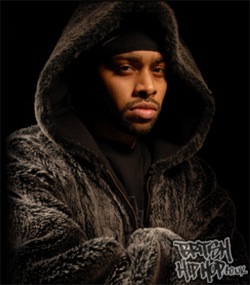 Karl Hinds: I had one keyboard given to me for Christmas. A Casio keyboard, that's all I had. I had the idea of Assassin Records and I was trying to teach myself about marketing and how to make your label look appealing, but I didn't have any equipment and I had loads of ideas. The most frustrating thing to any artist is having loads of ideas and no way of getting it out. I was in that position for a long time.
Karl Hinds: I had one keyboard given to me for Christmas. A Casio keyboard, that's all I had. I had the idea of Assassin Records and I was trying to teach myself about marketing and how to make your label look appealing, but I didn't have any equipment and I had loads of ideas. The most frustrating thing to any artist is having loads of ideas and no way of getting it out. I was in that position for a long time.
So you were like, lets set up my own label to do that?
Karl Hinds: Yep. I went to a friend of mine who was close friends with Embee who was big in the jungle scene at the time. He was making a tune with General Levy called “Wicked”. I used to just sit there and watch Embee make his music. I was just watching and then they went out, had an hour break and I made the first Assassin Records tune in a hour.
What was that release?
Karl Hinds: “Roughneck Sister Sue” and on the other side was “So In Love”. I made both tunes in two separate stolen sessions. I'd watched Embee use a 950 (Akai 950) and I just replicated what he did. I went to Awesome Records which was owned by Splitmatt and Lime at the time, No. 1 in the UK with “On A Ragga Tip”. Jay J was their MC and I went to him and he put it out. That's how I made the money to start Assassin Records.
Sweet. Tell us how you merged into Ill Flava Records from the money you were making from Assassin?
Karl Hinds: Well, Assassin was taking ages to get the money situated cause I didn't start up with any loan or anything. Every time I made money it had to go back in to the next release so it took me I think 6 or 7 years before I was able to get to the point of releasing hip hop. I was into Jungle but Assassin had established itself, so I had to start up another label as a vehicle for my hip hop. Ill Flava was just something that was just born from my surroundings.
When did you start writing rhymes?
Karl Hinds: I started writing rhymes when I was 13. Throughout the whole time I was making jungle, I was figuring out how to become a rapper. I knew how to rap but I didn't have my own identification or style. I was trying to sound like Nas.
What were your early influences when you started writing in the early 90's?
Karl Hinds: Das EFX, Souls of Mischief, Pharcyde. De La (Soul), Wu Tang, Nas, Jay (Jay-Z), Original Flavour. There was a whole heap of talent.
Were you also influenced by UK Jungle MCs?
Karl Hinds: To be honest, the emceeing side of jungle didn't influence me as a rap artist. I associated that with more Jamaican sound systems. I just saw that as an extension of that movement. In terms of the UK artists, at the time when I was buying hip hop, I wasn't really making the distinction everyone makes between UK and US. For me if it was heavy, I was buying it. MC Duke, Overlord X, Gunshot, Hijack, Marxman.
Your first release on Ill Flava Records was “Don Gramma”. Tell us about that? For me, it felt like a new wave of UK hip hop around that time.
Karl Hinds: Respect. I wasn't aware that it was part of a new wave movement, cause I had no concept of British Hip Hop. I was just making a hip hop tune. It was really Seanie T from when I was rhyming trying to sound like Nas. He always encouraged me but he just used get at me about the American twang. I was working on a jungle track. I was at Trouble On Vinyl a drum and base label and the owner was playing Big L, Ebonics. Sean had likened me to Big L a few times cause when I rhyme I don't have much base in my voice and neither did L. The way he kept comparing me to L I just thought if anyone can step up and give the UK a perspective on this track, I'll do it. I sat on that idea for two years. I wasn't in a position to just put it out. I was still building the label. It actually got to Big Ted at Kiss FM before I was ready for anyone to hear it. From its inception it took a life of its own. It really started to clear its path. Luckily I kinda knew how to get distribution…
After Don Gramma's release, everyone's talking about Karl Hinds and what a great record it is. You get three nominations at the UK hip hop awards in 2001. How did you feel about that? What was that like?
Karl Hinds: That was the second UK hip hop awards. We was at the first. We we’re just standing there in the audience “its going to be us next year” and… it happened. We won an award in 2001. Don Gramma won best video. I was nominated for best newcomer and best single also. The Heretik, who made the video, went and collected the award. It didn't change the way I perceive myself. What was happening around me, I wasn't aware of cause I was still trying to put the album together which was Hindsight.
You like those kind of synthy, squelchy sounds. I guess that's a bit of your roots from your old Junglist days?
Karl Hinds: You know what, a lot of people have drawn from that and I can't really say that it's not. What they call sort of house now, in the late 90's and early 00's, that the French and the Germans made their own. I thought that was hip hop. I was listening to DJ Fast Eddy. Tracks like This Brutal House which were house records I guess but I thought was just an extension of hip hop. It wasn't anything for me to fuse those kinda sounds together. To me it made sense.
What about other musical influences?
Karl Hinds: Definitely being from a West Indian background, it was reggae music. In the time that I was growing up Dennis Brown and Gregory Isaac's was the dominant force in reggae music. Alton Ellis, Barrington Levy, Papa Sam, Beenie Man, Admiral Bailey…
The heart of Hip Hop is Jamaican right. Kool Herc, KRS One. They were all on the sound systems from Jamaica. That vibe has influenced this side of the pond as well…
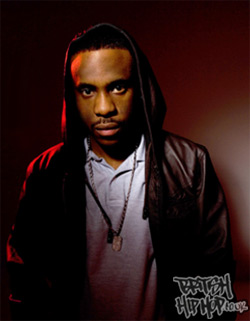 Karl Hinds: British influence in music is understated. Artist's like Papa Sam, who kind of perfected the fast talk in Reggae and the double chat, that is a British phenomenon. It started here, you can trace it back to the 80's where Britain was influencing world music.
Karl Hinds: British influence in music is understated. Artist's like Papa Sam, who kind of perfected the fast talk in Reggae and the double chat, that is a British phenomenon. It started here, you can trace it back to the 80's where Britain was influencing world music.
It’s been a while since your last album “Have Patience” in 2004. You are now about to release the new album “The Need To Be Heard”. What was the reason for the downtime between those albums?
Karl Hinds: The music industry was changing and I just kept getting the same results. In terms of sales I wasn't really exceeding past a certain point. People can be mad if they wanna but I was trying to break from the UK hip hop tag. I saw that UK hip hop was stuck in a sphere of 90's sounding music and that reduced your appeal. My spirit wasn't taking to that whole vibe and I was fighting against it. Also, the way that music was being sold was changing. It took me a little bit of time to figure out how to digitize my business and make it available for people to come to us direct and download.
There are some standout bangers on the new album like How'd Ya Judge It and Up Your Spit Game. Is every track produced by Karl Hinds?
Karl Hinds: All the tracks on all albums have been produced by me. Initially that was just a business decision because it’s cheaper. Then it became a bit of, okay, the production raised eyebrows. Some people where saying that's not how UK hip hop should sound. I was like alright, I'm gonna take it to war. I'm gonna push the boundaries. Like “Up Your Spit Game”. The production on that is not UK hip hop'esque at all. Its sits more in the middle of garage, drum and bass, jungle, grime and hip hop. I'm trying to get these people to understand that this is music first, more than anything and you've got to be able to not stay in a safe place, cause that's not growing and. I'm prepared to grow and put it out there. I'm not adverse for anybody else producing for me. Like I said originally it was a business decision. Its not like I don't want to work on anybody else's material. That's not true.
What about some of the featured artists on the new album?
Karl Hinds: Jeff 3 is a new artist on the label. We did an album called The Blacknificent 7, which we put out on Seanies (T) label and Jeff is the 7th person. You got Estelle, Rodney P, Roots Manuva, Myself, Skeme and Seanie spittin' and he's (Jeff 3) holding his own.
It must have been nice for you being part of that crew?
Karl Hinds: It felt like something big was happening. I don't know if I feel that it was marketed in the best way. I think as an album its sort of unrecognised for how original and creative it is. The whole concept of that album was Seanie T. Everybody had a definite individual style that was dissimilar to the next artist. We was all featuring on each other’s tracks or performing with each other so it felt completely natural. It was easy to come to an understanding in the studio.
How is it with those guys now? Like Estelle, is she going to get you on her next album?
Karl Hinds: Estelle is a superstar. I haven't spoken to her in a minute but she's got my support 100%. I knew that Estelle was just on a different hustle to everybody else. The thing that I was talking about before where everybody was stuck in that UK hip hop box. She wasn't interested. She just had a wider vision and again she deserves everything.
And then the other really big gun out of that, is Roots Manuva.
Karl Hinds: Yep. Roots, his voice is just real authoritative and it’s very distinctive. You trust when you listen to Roots and that this dude is fully confident in what he's saying. For a lot of people that don't know about the culture, he opens a door. He's also an artist that blends cultures which is really what the UK's about. Sean is quite similar in that sense to Roots in terms of his appeal. His style does not isolate people that are trying to understand or come into the culture.
Lets go back a bit again. When you released your first album “Hindsight” you toured the UK in 2002. How was that? Who did you tour with?
Karl Hinds: I was taking a guy called Pesci with me. He's got a track called Rapstyle British. He was just a cat that caught Sean and I's attention. I was trying to give that dude a platform and he was obviously bringing another dimension to my performance. Initially it was myself and Pesci that toured.
Was it important to get Karl Hinds out there?
Karl Hinds: Absolutely, but for me it was a brand new experience and funny enough, when I was doing the plan of it all it was something I didn't factor into it. I just completely forgot touring cause I was so emerged in the business. When it was time to tour it was like, oh shit, well okay we better go do it, so there really wasn't that much thought process behind it.
After the UK tour, you toured Europe in 2003 with DJ Dynamite aka Joni Rewind from Germany. Tell us about that?
Karl Hinds: Well that was nuts. I went out there actually to record a track on Joni's album, Welcome to the World of Joni Rewind. Me and Seanie T did a track called Inna Dance. That was my first experience of going out in Europe in terms of hip hop. When he was touring to promote his album he was supporting Afrob and Samy Deluxe, who had come together to do their album, ASD. Dynamite was supporting that and I was supporting him. He called me out to do 12 dates.
So it started in Germany?
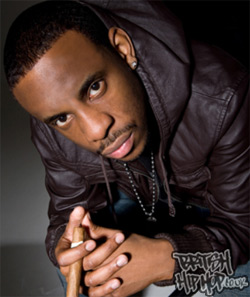 Karl Hinds: Its started in Germany, I did a couple of dates, then Switzerland, Belgium, a couple of other places.
Karl Hinds: Its started in Germany, I did a couple of dates, then Switzerland, Belgium, a couple of other places.
How was the crowd and the places you went?
Karl Hinds: It was insane, cause I'd done a couple of shows with him before and the first time was in Switzerland. People were coming up to me, shaking my hand saying, “people like you don't come out here”. I was thinking that's nuts because I've just been making the music at my Mum's house. I had only just dropped “Hindsight”, so that was like three weeks old and people where coming up to me in Switzerland talking about my new album, which is insane.
Hip hop is really big in Europe like Germany, France, Scandinavia, Holland, yet the UK hasn't quite got that mainstream factor. Why is that?
Karl Hinds: It’s that box that UK hip hop wants to keep itself in. There were a few people that were eating well or at least satisfying whatever needs or urge they were having with hip hop staying were it was in Britain. As a consequence the music didn't really branch out as it was supposed to because if you're being introspective, you're only representing what's around, you’re not reaching out, so it was strange ‘cause I would hear people make the point that you're making but they'd be the artist or the people controlling hip hop and they'd be complaining about it. But if you’re introspective and you want to keep everything in house, then what do you expect?
How do you think language has affected that? The other countries in Europe have their own native tongue whereas the UK have had to come after America which is the same language? Do you think we got too used to hearing rapping in an American twang?
Karl Hinds: Absolutely. I think that definitely contributed. When I was in Germany I got to see the excitement of the crowd seeing a representative of their society on stage talking to them in their language. In England we would have had the same effect had we sounded English when we started.
How do you think Grime has played a part in the UK hip hop scene?
Karl Hinds: I think that Grime is just the introspective thing that I keep going back to. No, we don't want to hear from you, this is how we want hip hop to sound, but you can't close off the voice of the youth. Grime is on some, okay, if your gonna do that there, then we'll do this over here. It was the driving force behind my track Psycho Analysis where I'm warning British hip hop. Stop ignoring the sound of the people that are really expressing themselves.
Do you think hip hop could be more collaborative with their grime counterparts?
Karl Hinds: When grime first popped off a lot of UK hip hop artists thought that they were going to get unilateral support from artists like myself, dissing or trying to chant down grime cause it's not structurally as acclaimed as rap. Grime to me exposed how dated British hip hop was. The soul of what hip hop was built from is in grime.
Do you think hip hop culture needs saving and in what ways do you think it needs to be saved?
Karl Hinds: It needs to return to the essence. Nowadays people pick up a microphone to make money. Before people picked up the mic to express what's going on around them. Now there is no message. It needs to get back to that.
Everyone is talking about the increase in gun and knife crime here in London. Do you think rappers have a responsibility to spit sense to their listeners?
Karl Hinds: Absolutely. Hip hop spawned a generation of kids that were self taught. Like Public Enemy brought me into learning more about my culture, myself, as a black man. You absolutely have a duty to do that. If you're not doing that you're not making hip hop, simple as. You're making pop music.
Who you feeling right now in the UK and the rest of the world?
Karl Hinds: I'm kinda feeling a whole heap of people from Scorcha to Klashnekof to Kyza. Foreign Beggars are doing some serious stuff right about now. Internationally, Ludacris, Termanology – a guy that I'm indirectly working with. Royce Da 5'9” is one of the most slept on hip hop artists ever. He's just phenomenal. There's a lot of grime boys that I feel the spirit of hip hop in.
Your opinion of hearing rapping in other languages? Can you get into the flow even though you don't understand it?
Karl Hinds: I got to a new level of overstanding when I toured with ASD in Germany. I couldn't understand what they were saying but I saw the performance and I'd get just as excited as the crowd. The energy and the vibe. You can tell that they're flowing on point. That kinda brought me to a new level of understanding. You cannot fault it.
One final message to the world?
Karl Hinds: Right about now hip hop really needs to wake up and be conscious. What you're saying hasn't got to be the deepest thing ever but make it come from a real place because hip hop is dying in my opinion, so if we don't want it dead, wake up.
By: The Bej | For international hip-hop: http://www.myspace.com/ibmcs
